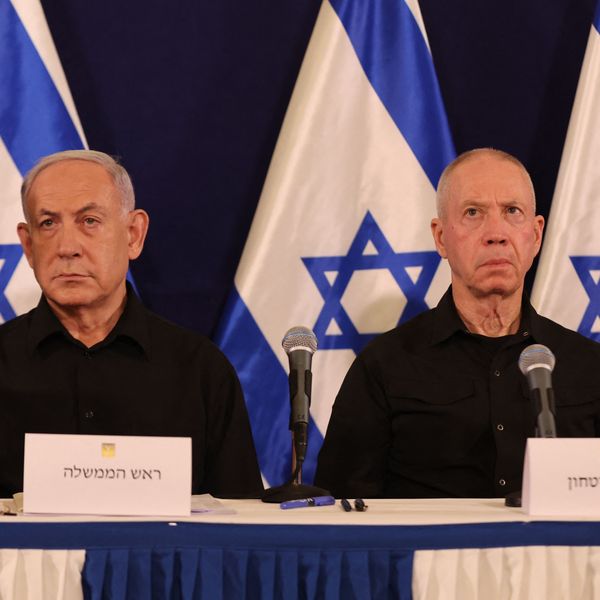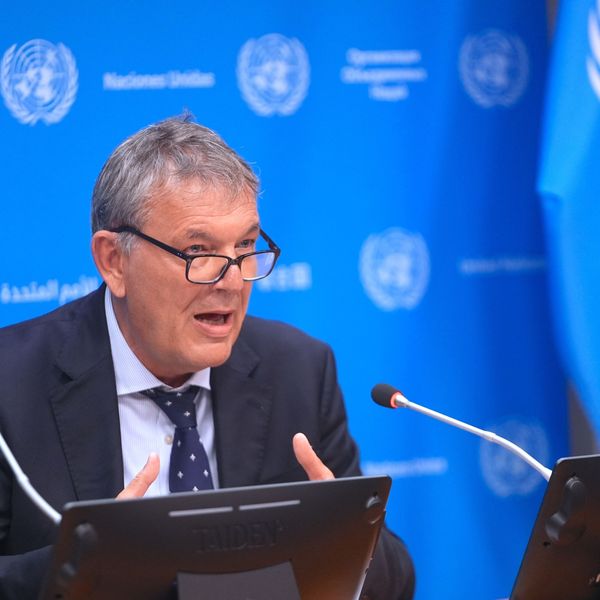In its last meeting in New York, the Russell Tribunal, also known as the International War Tribunal, strongly condemned Israeli policies towards Palestinians, particularly in the Gaza Strip. In addition, the Russell Tribunal criticized the U.S. and the UN complicity in allowing Israel to carry out its policies.
The Russell Tribunal on Palestine was created in March 2009, and held its first three sessions in Barcelona (2010), London (2010) and Cape Town (2011.) The New York session was held in New York from October 6 to October 8 of 2012.
The Tribunal was composed of major international figures working for human rights, such as Mairead Corrigan Maguire, a former Nobel Peace Laureate from Northern Ireland, and Stephane Hessel, who is its honorary president.
Hessel has had a remarkable life. He was born in Germany and emigrated to France and joined General de Gaulle's group of Resistance fighters. He was later captured by the Gestapo and deported to the Buchenwald and Dora concentration camps were he suffered water boarding torture. He escaped to Hannover, where he met US troops. He participated in the editing of the Universal Declaration of Human Rights of 1948 and received prestigious awards.
The noted philosopher Bertrand Russell explained the creation of the tribunal by quoting Justice Robert H. Jackson, Chief Prosecutor at the Nuremberg War Crimes Trial, who had stated, "If certain acts and violations of treaties are crimes, they are crimes whether the United States does them or whether Germany does them. We are not prepared to lay down a rule of criminal conduct against others which we would not be willing to have invoked against us."
The Tribunal discussed Israeli actions established in previous sessions that constitute violations of international law, treaties, resolutions of the political organs of the UN, and the Advisory Opinion on the Legal Consequences of the Construction of the Wall in the Occupied Palestinian Territory.
Based on its analysis of the situation in the Middle East with regard to the Palestinians, "The Tribunal finds that ongoing colonial settlement expansion, its racial policies, as well as its violent militarism would not be possible without the US's economic, military and diplomatic support. Following World War II, and since then, the US has demonstrated a commitment to Israel's establishment and viability as an exclusionary Jewish state at the expense of Palestinian human rights. While the US Administrations initially offered moral support, since the Six Day War in 1967, the US has provided unequivocal economic, military, and diplomatic support to Israel in order to establish a qualitative military superiority over its Arab neighbors in violation of its own domestic law."
With regard to the UN, the Tribunal established that, "The lack of concrete UN action against Israel constitutes an international wrongful act, which prejudices Palestine and implicates the Organization's responsibility. The unlawful nature of the UN omissions is acute due to their exceptional gravity under international law."
The formation and conclusions of the Russell Tribunal on Palestine has been strongly criticized. After the third session of the Russell Tribunal on Palestine which took place in Cape Town in 2011, a group of Jewish South Africans protested against the court, and the organizer of the protest called it a "Kangaroo Court."
Although the jury of the Tribunal is composed of internationally recognized human rights activists, Richard J. Goldstone, a former justice of the South African Constitutional Court who led the United Nations fact-finding mission on Gaza in 2008-2009 stated in a New York Times article, "The "evidence" is going to be one-sided and the members of the "jury" are critics whose harsh views of Israel are well known." Goldstone obviously saw no conflict in having a Jewish background and heading a delegation whose aim was to investigate the Israeli government crimes against the Palestinians.
The aim of the Russell Tribunal was aptly expressed by Stephane Hessel. When I asked him in New York, "Why are you so interested in the fate of the Palestinians?" he responded, "Because I am interested in the fate of Israel."



